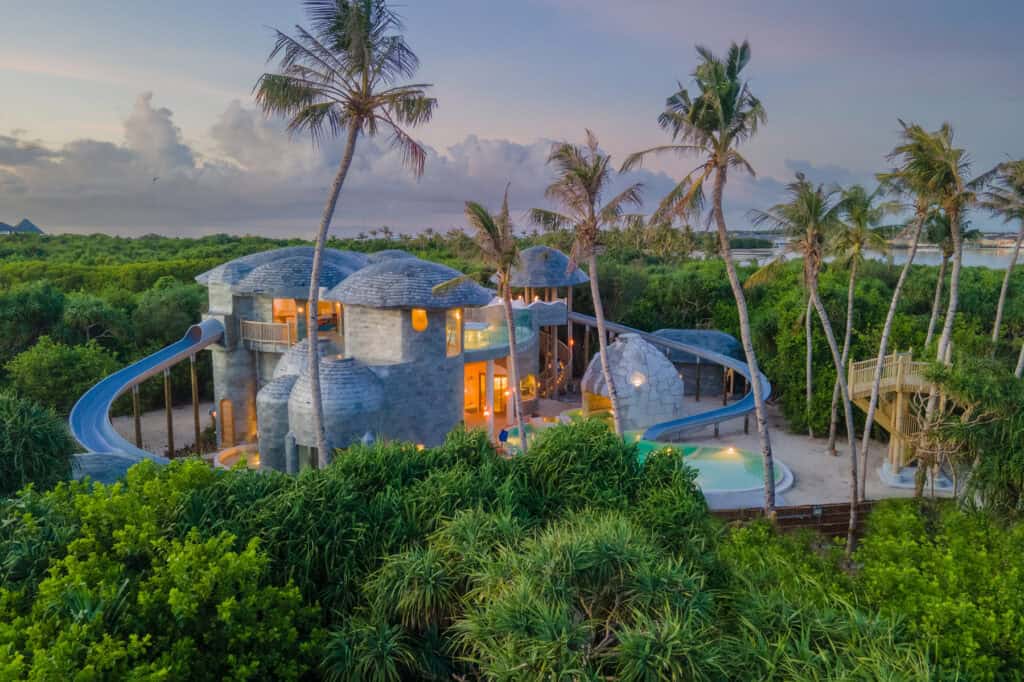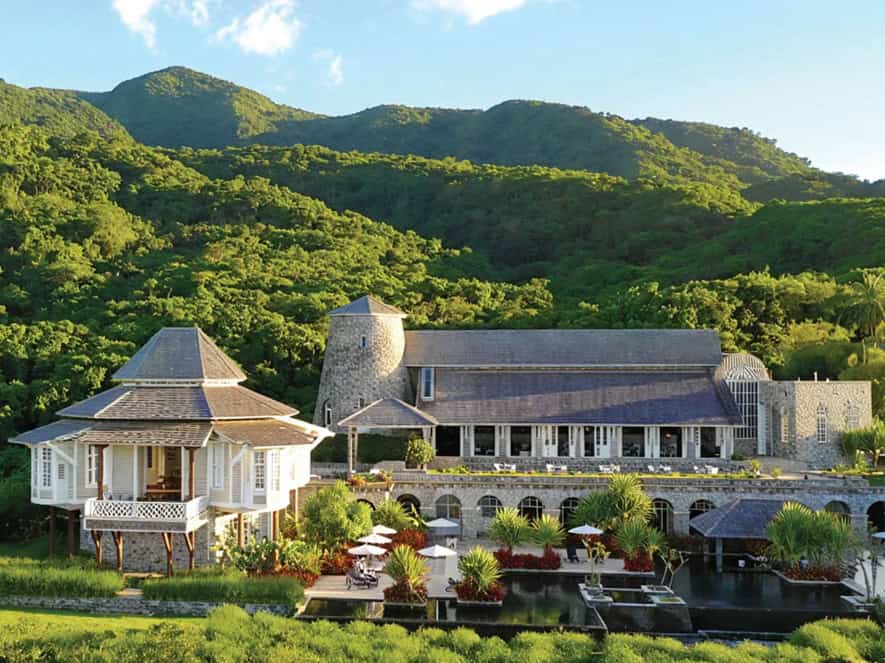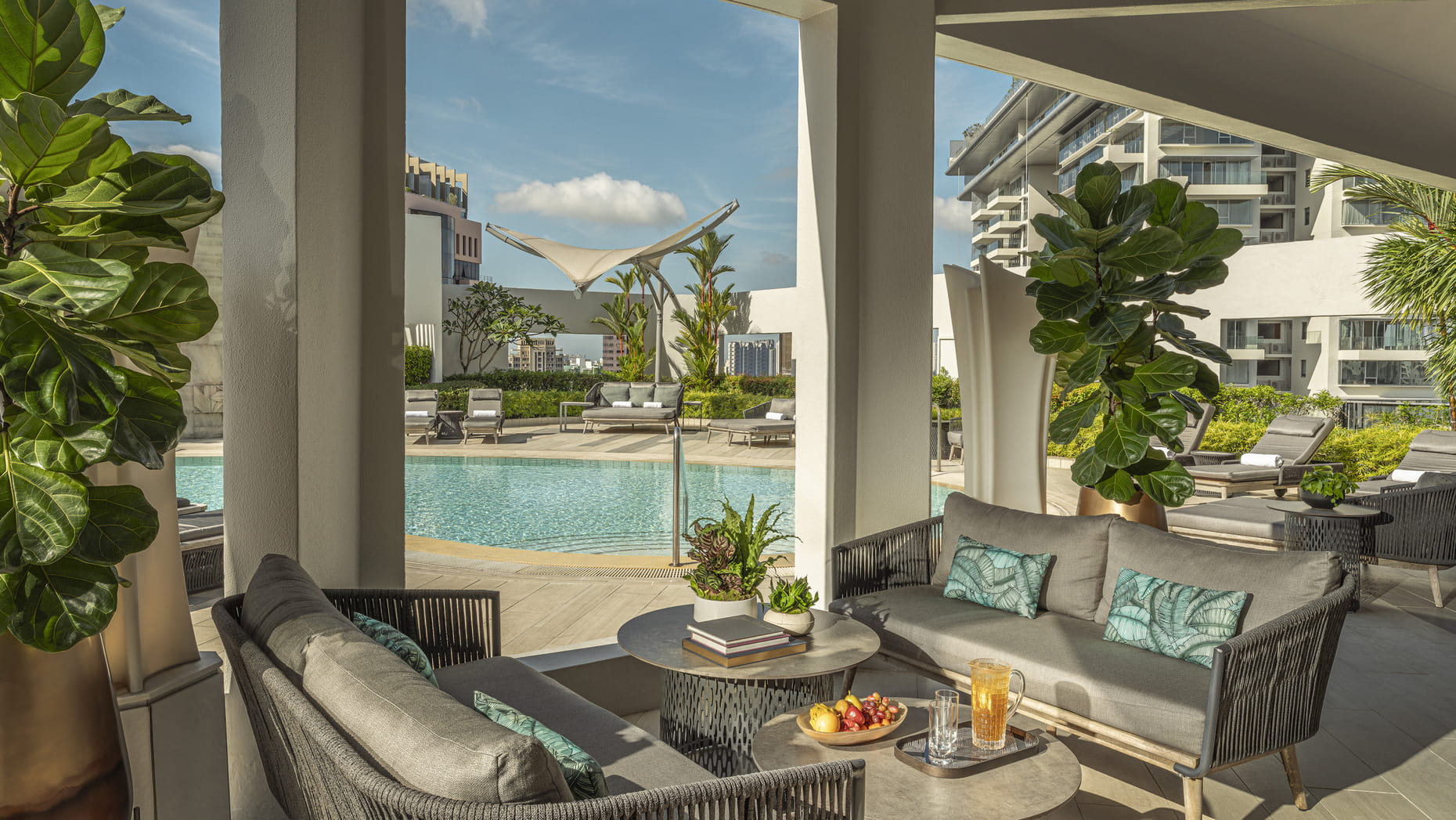At SANGHA By Octave Institute, wellbeing is at the core of its principles and offerings. For Chairman Frederick Tsao, it’s a way of life, and with the ongoing unprecedented burdens of the pandemic, it’s become more prominent than ever alongside ongoing human challenges like sustainability, wealth inequality, climate change and the rise of artificial intelligence. In his new book Dawn of an Era of Well-Being – New Paths to a Better World, Frederick explores the practical approaches for creating a better world with contributions by Gregg Braden, Deepak Chopra, Hazel Henderson, Jean Houston, Bruce Lipton, Tomoyo Nonaka and Neale Donald Walsch. We speak with Frederick on what to expect as a reader of this inspirational book.
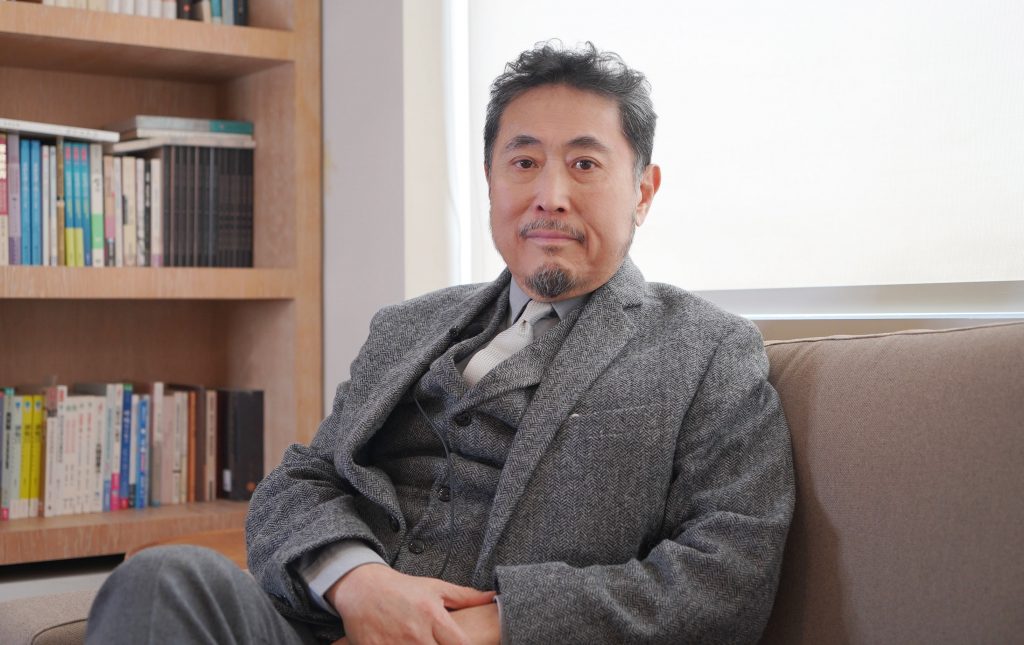
What inspired you to write this book? Humankind today is facing a number of monumental challenges—the sustainability of natural resources, climate change, wealth inequalities, breakdowns in social structures, the impact of artificial intelligence, and of course the threat of pandemics. The COVID-19 pandemic is an example of how the universe is constantly rebalancing itself to offset forces moving in contradiction to its natural energy, which in Chinese culture is called the Dao. An impact of the virus has been to slow us down and force us all to reflect, to open our eyes to the need for change, to see that a new normal is both required and imminent. And the crisis also showed that we can heal if we choose a new way.
See also: SANGHA Retreat by Octave Institute Introduces New Immune Boosting Programmes
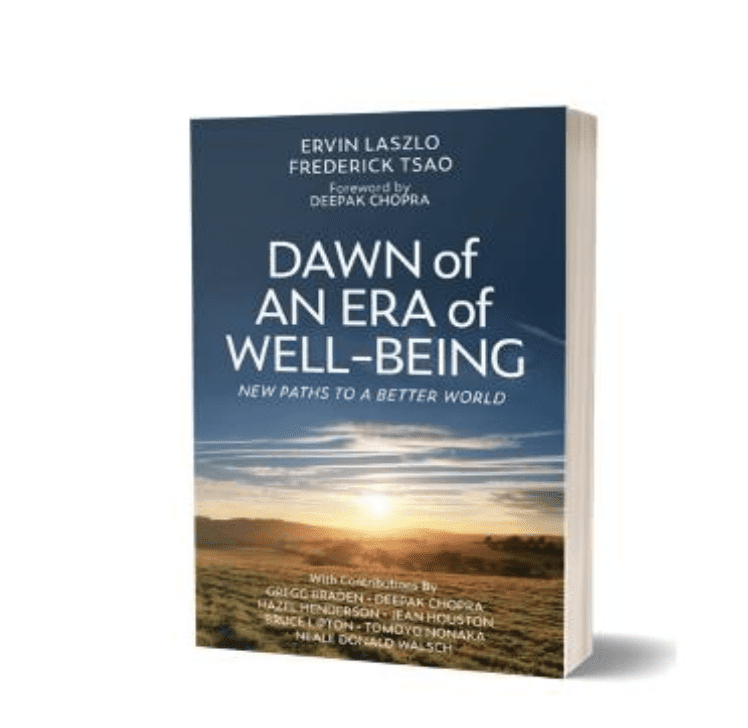
We are at a crossroads. We have a choice—either to continue down the road beset by many crises caused by divisiveness and separation or find the road toward unity, well-being and thriving. Change is needed on all levels: change for the individual, change for society, and change in the consciousness that defines what we do and who we are. It is imperative that we achieve constructive change on all levels if we are to avoid even greater crises heading our way with the direst of consequences.
It is easy to be overwhelmed by a sense of chaos, but amidst the chaos lies the possibility of connecting with each other, reconnecting to our roots, and creating a shift in our consciousness. Now we can set about creating a new and better era for the human family, an era marked by individual and collective well-being.
—Frederick Tsao, Chairman of SANGHA By Octave Institute

It is easy to be overwhelmed by a sense of chaos, but amidst the chaos lies the possibility of connecting with each other, reconnecting to our roots, and creating a shift in our consciousness. Now we can set about creating a new and better era for the human family, an era marked by individual and collective well-being.
I wish to put forth the understanding that each of these challenges is an opportunity to create a better future for our Earth. But first, we need to open our eyes and understand how the old “normal”—the conventions and assumptions about how our systems work—are no longer sustainable. Change is going to occur, and a “new normal” is not simply necessary; it is also imminent.
See also: Quantum Meets Qi: How Sangha Retreat By Octave Are Blending Tech & Tradition
The Dawn of an Era of Well-Being offers a unique worldview called the “quantum paradigm” that is emerging in society. Its concepts and principles are drawn from theories of Western science and Eastern wisdom traditions of human spirituality. The compass points for navigating these uncharted waters are of interest to all who seek a better world for our fellow beings who inhabit our planet.

I hope to inspire more people to seek to understand the importance of life’s purpose and to provide more practical value to these ideas as human communities take up this individual and collective responsibility of building a better world.
See also: The Compare Retreats Wellness Quarantine Guide By Rachel Moon
Can you tell us about the launch of the new book and what to expect as an individual looking for holistic health and well-being? Expectation is different for everyone, some may feel challenged, others may find excitement, yet another group may reject, whilst it may invoke reflections in others—the feeling of normalcy or comfort will not be what it will bring. This book points you towards transformation—break-down and rebuild systems, from self to others to environment—conveying a new paradigm of wellbeing that is systemic, integrated, holistic and coherent. Coherence in society calls for working together and creating the system where “I” becomes “WE”—where the parts maintain their unique identity while working together to maintain the integral coherence of the whole that they form. This is the principle we obtain when the quantum paradigm meets the way, the Dao of the eastern Chinese traditions.
There is nothing more important in any group and any society than having an informed and responsible leader. The quantum leader—the leader acting on the wholeness principle deriving from the quantum paradigm—focuses on aligning, collaborating, and creating conditions conducive to the flourishing of life. This form of leadership in the book will reorientate its readers seeking holistic health and well-being— there is no individual without the collective.
See also: Powerscourt Springs: A Charming Health Farm in Ireland

The leader effectively serving the good of society serves the interest of all life on the planet. This requirement may appear idealistic and even utopian in the context of today’s dominant ideology in business and politics. But the post-pandemic era requires radical changes in our idea and ideals of leadership. This book offers the necessary fundamental reorientation that “I can only be well when everything around me is well, and everything around me will be well when I am well”. It is the space that provides the flourishing of the “I” within the “WE”.
How does your book incorporate wellness and well-being elements? The book explores new paths toward holistic well-being. It explores our contemporary approaches both from the East and the West. Holistic wellbeing is not only about mind, body and spirit. It is also about the connection with the inner self, other people and nature. The goal is to achieve harmony and unity amidst diversity to make human society a reflection of the reality of nature. By integrating the Western life science of consciousness with traditional Chinese wisdom, a foundational structure for universal ethics will guide humankind’s journey toward Great Unity, a society in which diversity is not only respected but deployed in the process of creation and collaboration. It is only in diversity that great things are made. The same things are brought together to create more of the same things, but diversity creates something extraordinary.

What made you choose Deepak Chopra for the foreword for this launch? The universe is more like a great thought than like a great machine and it is for this very reason this book will present seven contributors, from east to west, from ancient to modern, offering different perspectives to the dawn of the well-being era. Together, we bring cosmology close to religion and spirituality and open the way to reconsidering the idea of a divine element in nature in terms acceptable to science. In this respect, Deepak Chopra, a recognised thought leader in this field, offers a unique culmination of philosophy, knowledge and practice that draws from eastern wisdom from India and western modern science, providing another perspective towards the new path to a better world.
Can you share with us the wellness principles at SANGHA? SANGHA Retreat is a large health and mindfulness community whose mindful living system is based on Eastern wisdom and Western science. Guests are encouraged to become fully immersed in their wellbeing evolution by joining programmes that enhance their inner awareness and in which they delve into the improvement of the seven habits of life: eating, breathing, sleeping, movement, stillness, mindfulness and self-development.
See also: The Benefits Of CBD: An Interview With Dr. Julie Moltke, Author & Medical Doctor

There is a key wellness programme at SANGHA called “The Mindful Living Journey”. During this eight-day journey, participants complete various challenges that were created using modern mindful practices from the East. These include walking exercises, yoga stretching, mindful breathing, meditation and sound healing therapy sessions. They also experience mindful eating on a predominantly vegan diet and can join a wide range of classes on mindfulness to attain a higher level of wisdom.
What are your own wellness principles? As a member of a family, a leader of a company, and a part of society, my principles of health are not only about myself but also about families, organisations and the sustainability of human society. Only when our relationships are strong can we be healthy. Only when organisations are harmonious can leadership be achieved, and only when they are sustainable can humanity have a future. The philosophy of wellness that the Octave Institute promotes is also my principle of wellness.

